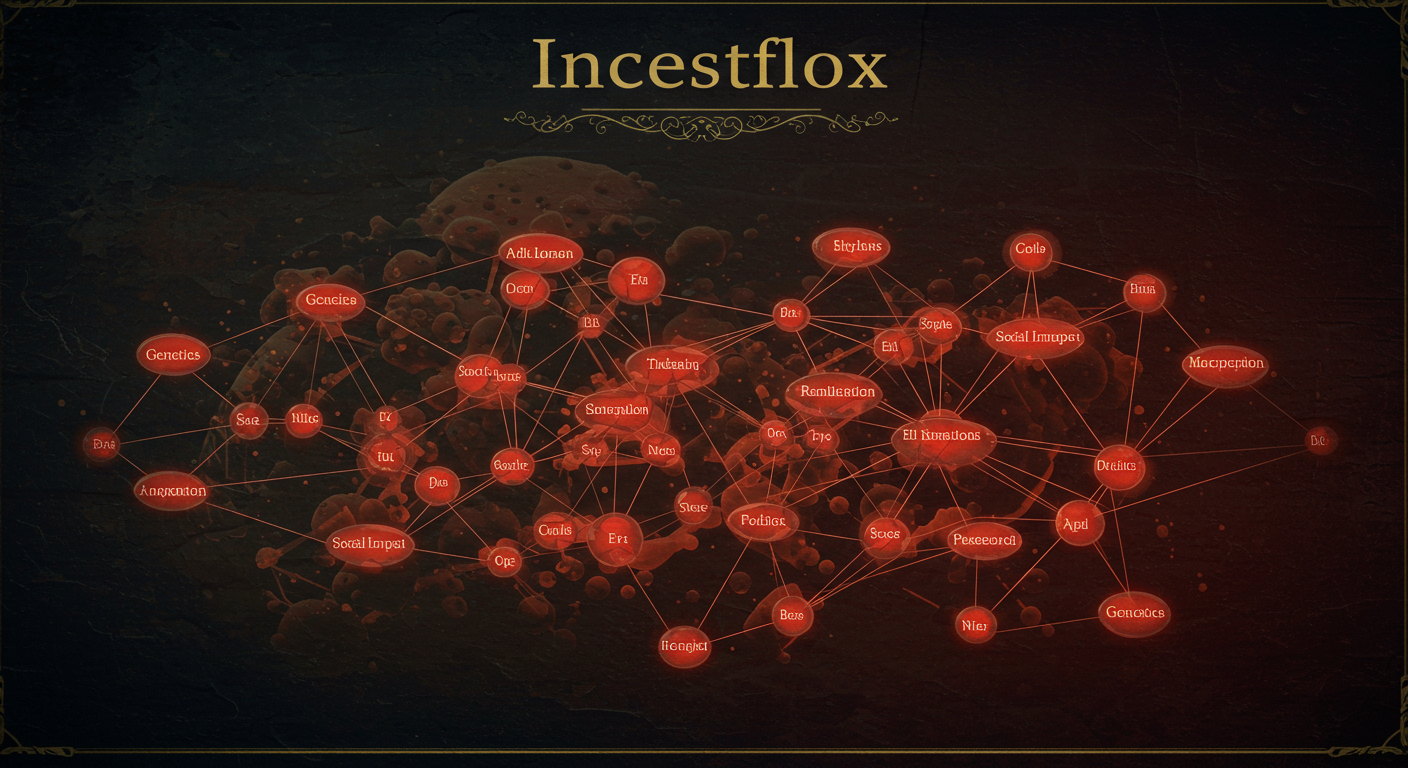Incestflox is a term that has recently surfaced in online discussions, sparking debates about its meaning, ethical implications, and societal impact. While the exact origins of the term remain unclear, it appears to be a portmanteau combining “incest” and “flox,” possibly referring to a controversial concept or phenomenon.
This article delves deep into the possible interpretations of Incestflox, its ethical and psychological ramifications, legal perspectives, and why it has become a topic of heated discussion. By the end, readers will have a well-rounded understanding of this complex and sensitive subject.
What Is Incestflox?
The term Incestflox does not have a widely recognized definition, but breaking it down provides some clues:
- Incest: Refers to sexual relations between closely related individuals, which is taboo in most societies due to biological, ethical, and psychological concerns.
- Flox: Could be derived from “fluoroquinolone,” a class of antibiotics, or from “flux,” meaning continuous change. Alternatively, it might be a misspelling or an intentional alteration of another word.
Given these interpretations, Incestflox might refer to:
- A Hypothetical Genetic or Medical Condition – Possibly a condition resulting from incestuous relationships, leading to genetic disorders.
- A Social or Psychological Phenomenon – A term describing the psychological impact of incestuous relationships.
- An Online Subculture or Fetish – Some fringe online communities discuss taboo topics, and this could be a coded or slang term.
- A Fictional or Mythological Concept – Used in speculative fiction or dark storytelling.
Since Incestflox is not an officially recognized term, its meaning largely depends on context. However, given its components, it likely relates to incest and its consequences.
The Ethical and Psychological Implications of Incestflox
If Incestflox refers to the consequences of incest, it raises serious ethical and psychological concerns:
1. Genetic Risks
Incestuous relationships increase the likelihood of genetic disorders due to the higher chance of recessive genes pairing. Conditions such as:
- Cystic fibrosis
- Hemophilia
- Down syndrome
- Intellectual disabilities
A term like Incestflox could metaphorically describe the “flox” (damage) caused by incest.
2. Psychological Trauma
Incest often leads to severe emotional and psychological harm, including:
- Guilt and Shame: Victims may struggle with self-worth.
- Family Dysfunction: Breaks trust within family structures.
- Long-term Mental Health Issues: PTSD, depression, and anxiety are common.
3. Societal Taboos and Moral Boundaries
Most cultures strictly prohibit incest due to:
- Moral and Religious Beliefs: Seen as unnatural or sinful.
- Legal Restrictions: Incest is criminalized in many countries.
- Social Ostracization: Families involved may face severe backlash.
If Incestflox is used to describe a phenomenon where incest becomes normalized (even in niche circles), it would be highly controversial.
Legal Perspectives on Incest and Related Concepts
Laws regarding incest vary globally:
- United States: Most states criminalize incest, with penalties ranging from fines to life imprisonment.
- Europe: Some countries (e.g., France, Spain) allow consensual adult incest, while others (e.g., Germany) prohibit it.
- Middle East & Asia: Strict religious and cultural laws often impose severe punishments.
If Incestflox refers to a legal loophole or a new trend attempting to justify incest, it would face fierce legal and social opposition.
Incestflox in Online and Fringe Communities
The internet has given rise to niche groups discussing taboo subjects. Possible connections include:
1. Dark Web and Fetish Forums
Some extremist forums explore illegal or morally questionable topics. Incestflox could be a term used in such spaces.
2. Fictional and Mythological Contexts
In horror or dystopian literature, a concept like Incestflox might describe a cursed bloodline or a genetic plague caused by inbreeding.
3. Misinformation and Shock Content
Some users create fake terms to provoke reactions or spread misinformation. Incestflox could be an example of such trolling.
Why Is Incestflox Gaining Attention?
Possible reasons for its sudden discussion:
- Social Media Algorithms – Controversial terms spread quickly for engagement.
- Psychological Fascination with Taboos – People are drawn to forbidden topics.
- Misinterpretation or Hoax – Could be a fabricated concept that gained traction.
Final Thoughts
The concept of Incestflox, whether interpreted as a metaphor for genetic degradation, a psychological phenomenon, or an online subculture, forces us to confront the enduring societal taboos surrounding incest and their critical role in maintaining biological and social health. While the internet can amplify fringe ideas, it is crucial to recognize that some boundaries exist for valid ethical, scientific, and moral reasons. The risks of inbreeding—genetic disorders, psychological trauma, and familial dysfunction—are well-documented, making any attempt to normalize or rationalize incest deeply problematic. Society must remain vigilant against the erosion of these boundaries, ensuring that discussions around such topics do not legitimize harmful behaviors but instead reinforce the importance of safeguarding human dignity and well-being.
Ultimately, whether Incestflox is a genuine phenomenon or a fabricated concept, its emergence in discourse serves as a reminder of the internet’s power to both challenge and distort ethical norms. While curiosity about taboo subjects is natural, we must balance open inquiry with a firm commitment to protecting vulnerable individuals and upholding societal values. Education, responsible content moderation, and support for victims of abuse are essential in countering any movement that seeks to undermine these principles. The conversation around Incestflox should not be about exploration or acceptance but about reaffirming why certain prohibitions exist—and why they must endure.
